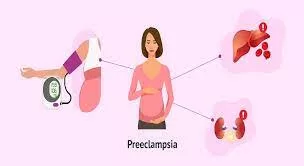February 12, 2024
As cancer cases continue to surge in smaller cities across India, health experts are calling for urgent measures to expand oncology services to tier-II cities to ensure accessible diagnosis and treatment for a larger population.
This pressing need was underscored at the two-day scientific conference IO-CON2024 hosted by the International Oncology Cancer Institute (IOCI) in the national capital, where experts emphasized the importance of reaching the greatest number of people, particularly in underserved areas.
“Of the almost 14 lakh new cancer cases diagnosed in India every year, more than 60 per cent get diagnosed in advanced stages, highlighting the crucial need for enhanced awareness and diagnosis,” stated Shubham Garg, Director of Surgical Oncology at Fortis Hospital, Noida.
Anita Malik, Senior Consultant and clinical lead radiation oncologist at IOCI, stressed the necessity of scaling up radiation therapy equipment to meet the growing demand. With a 5-7 per cent annual increase in cancer cases in India, the World Health Organization (WHO) recommends scaling up the number of machines to 1,400. However, the current infrastructure falls short, necessitating robust public-private cooperation to make treatment accessible to a broader segment of the population.
Among the rising cancer cases in India, lung cancer, head and neck cancers, and breast cancers are predominant. Surprisingly, 50 per cent of lung cancer cases occur in non-smokers, mainly due to deteriorating air quality and lifestyle factors.
Madhur Garg, Clinical Director of Radiation Oncology at Montefiore Medical Center in the US, emphasized the urgency of expanding oncology services in tier-II cities. He highlighted the willingness of doctors to serve in these areas provided there is sufficient infrastructure to support cancer treatment services.
Garg also acknowledged the positive impact of initiatives like Ayushman Bharat, the government’s health coverage program, which provides financial assistance for cancer treatment, thereby improving accessibility to testing and treatment processes in smaller towns.
“The future of cancer treatment is optimistic, but timely detection is key, requiring a more people-friendly approach at oncology centers. Medical services must reach smaller cities, where cooperation between the government and private sector healthcare can make a significant difference and save more lives,” emphasized Rajat Bajaj, Programme Director at IOCI.
In light of the escalating cancer burden, concerted efforts are needed to bridge the gap in oncology services, ensuring equitable access to diagnosis and treatment for all, irrespective of geographical location.












